The cryptocurrency market has long been defined by volatility, innovation, and growing institutional interest in digital assets. Grayscale Investments, a subsidiary of Digital Currency Group (DCG), has been a pioneer in combining traditional finance with cryptocurrencies through its suite of investment products. Recently, there has been speculation about a potential filing by Grayscale for a Spot Dogecoin ETF, with references to the “$19 billion” figure and a “fourth filing”. Although this claim has not been officially confirmed, it has sparked significant discussion. Below, we explore the context, implications, and challenges of such a move, assuming it were true.
1. Grayscale Investments: The Pioneer in Crypto Asset Management
Grayscale is best known for its Bitcoin Trust (GBTC), the first publicly quoted cryptocurrency investment vehicle in the U.S., launched in 2013. By 2023, Grayscale managed over $19 billion in assets across products like the Ethereum Trust (ETHE), Litecoin Trust (LTCN), and others. Its business model revolves around creating regulated, institutional-grade exposure to cryptocurrencies without requiring investors to hold the underlying assets.
Key features of Grayscale’s products:
- Trust Structure: Grayscale’s products are structured as Grantor Trusts that trade on secondary markets (e.g., OTCQX) but do not allow for direct redemption of crypto.
- Premium/Discount Dynamics: Shares often trade at a premium or discount to the net asset value (NAV) of the underlying crypto, reflecting market sentiment.
- SEC Investigation: Grayscale has been fighting with the U.S. Securities and Exchange Commission (SEC) for years over its plan to turn its Bitcoin Trust into a Spot Bitcoin ETF, a move that the SEC has repeatedly blocked due to concerns about market manipulation and custody.
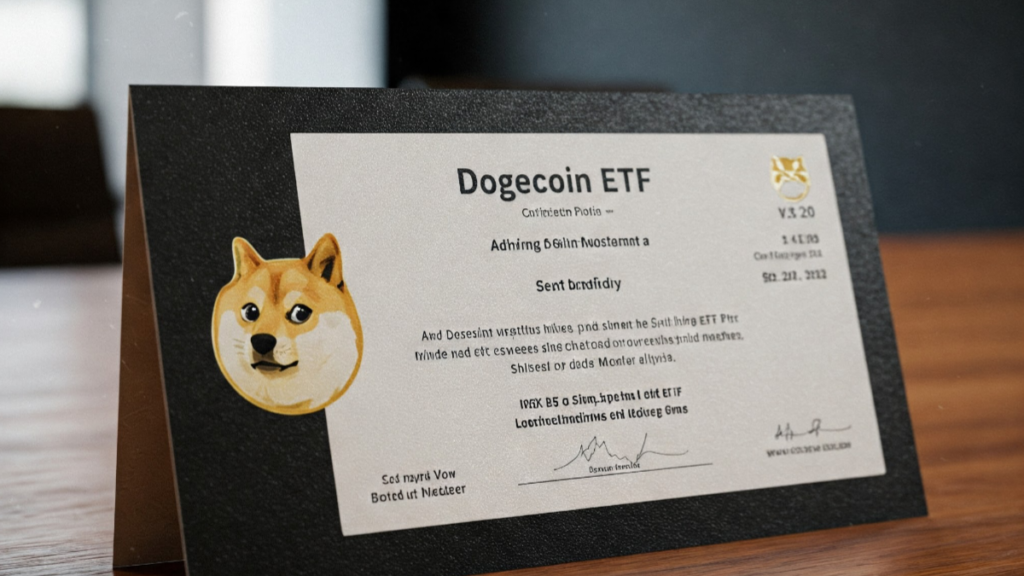
2. The Rise of Dogecoin: From Meme to Mainstream
Dogecoin (DOGE), created in 2013 as a joke based on the Shiba Inu dog meme, has evolved into a cultural phenomenon. Despite its origins, DOGE gained legitimacy thanks to:
- Community Support: A passionate, retail-driven community.
- Celebrity endorsement: Elon Musk’s tweets and appearance on Saturday Night Live put DOGE in the spotlight.
- Utility: Adoption by companies like Tesla, AMC Theatres and the Dallas Mavericks for payments.
However, Dogecoin remains highly speculative:
- No supply cap: Unlike Bitcoin (21 million cap), DOGE’s supply is inflationary, with 10,000 new coins mined every minute.
- Volatility: DOGE’s price is highly volatile, often driven by social media trends rather than fundamentals.
3. What is the Spot Dogecoin ETF?
The Spot ETF holds the actual cryptocurrency (in this case, DOGE) and allows investors to buy shares while tracking its price. This is different from futures-based ETFs, which derive value from derivative contracts. Spot ETFs are considered a more direct and efficient way to gain crypto exposure.
Why a Dogecoin ETF matters:
- Institutional access: Traditional investors can gain DOGE exposure without having to manage private keys or wallets.
- Regulatory legitimacy: SEC approval would indicate that DOGE is not a security, thereby reducing regulatory risk.
- Market liquidity: Increased trading volume and stability for DOGE.
–
4. “$19 billion” and “fourth filing” reference
The “$19 billion” figure likely refers to Grayscale’s total assets under management (AUM) in 2023, not a specific Dogecoin ETF filing. The “fourth filing” could mean Grayscale’s fourth attempt to launch a crypto ETF, though no such filing for DOGE publicly exists.
Doge Coin ETF IN 2025
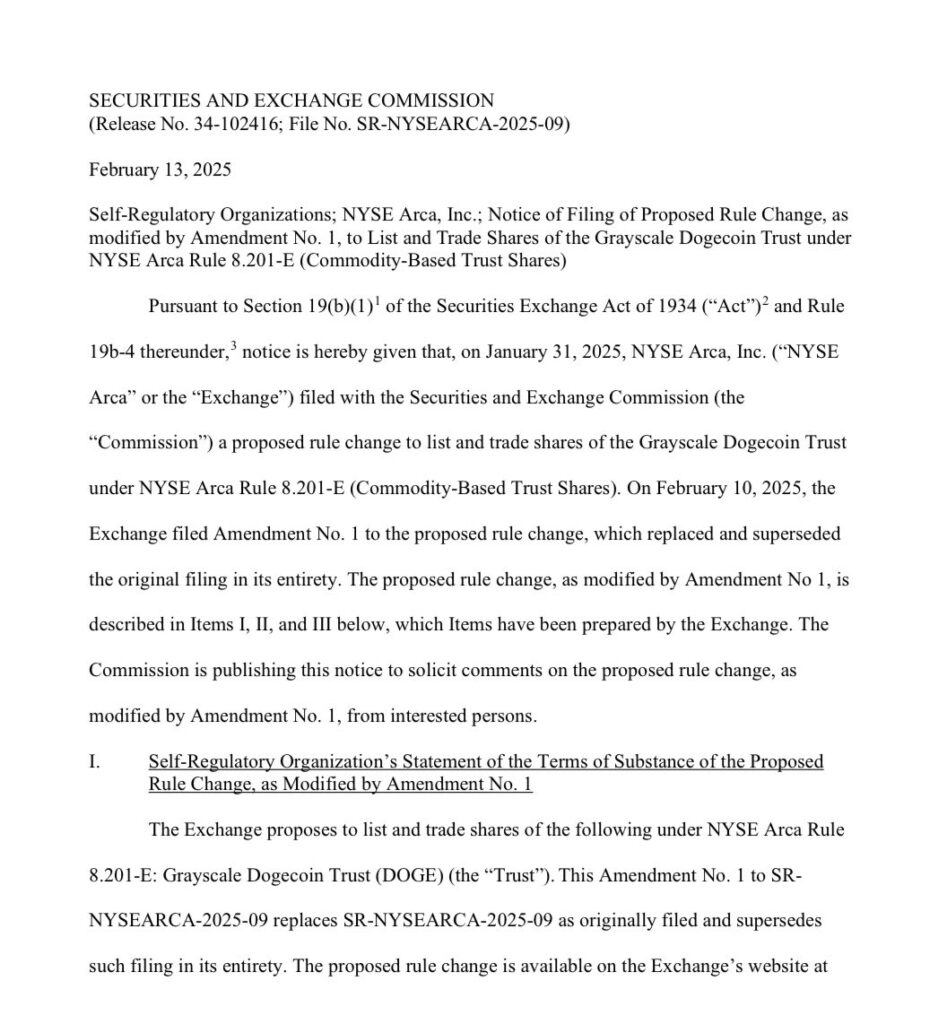
Grayscale’s ETF efforts so far:
- Bitcoin Trust Conversion: Grayscale sued the SEC in 2022 after its spot Bitcoin ETF application was rejected. A court ruling in August 2023 favored Grayscale, forcing the SEC to reconsider.
- Ethereum Futures ETF: In September 2023, Grayscale applied to launch an Ethereum futures ETF.
- Other Crypto Trusts: Grayscale has explored products for Solana, Polkadot, and others, but no ETFs.
Given DOGE’s unique position compared to Bitcoin or Ethereum, a Dogecoin ETF would represent a bold new direction.
5. Challenges for a Spot Dogecoin ETF
a) Regulatory Hurdles
The SEC has historically rejected spot crypto ETFs for the following reasons:
- Market Manipulation Risk: DOGE’s low market capitalization (~$10 billion) and concentrated ownership (the top 10 wallets control ~40% of the supply) makes it vulnerable to pump-and-dump schemes.
- Custody Concerns: Secure storage solutions for DOGE are less established than those for Bitcoin.
- Securities Classification: While the SEC has not deemed DOGE a security, its meme-driven nature may invite suspicion.
- Lack of Institutional Demand: DOGE is primarily traded by retail investors, unlike Bitcoin or Ethereum.
- Competition: Established ETFs like the ProShares Bitcoin Strategy ETF (BITO) focus on futures, not spot holdings.
- Grayscale’s legal battles: The firm is already embroiled in litigation over its Bitcoin ETF; adding DOGE could put a strain on resources.
c) Dogecoin Fundamentals
- Inflation model: DOGE’s unlimited supply is the opposite of Bitcoin’s scarcity, reducing its appeal as a long-term store of value.
- Developer activity: Dogecoin’s development team is small, with protocol updates infrequent.
6. Hypothetical impact of Dogecoin ETF
If approved, the Grayscale Dogecoin ETF could:
- Increase DOGE’s price: Increase demand from institutional investors.
- Normalize meme coins: Could legitimize assets like Shiba Inu (SHIB) or PEPE.
- Put pressure on the SEC: Put pressure on regulators to clarify policies on non-Bitcoin ETFs.
However, risks include:
- Market saturation: Over 1,500 cryptocurrencies exist; an ETF for every asset is impractical.
- Investor reaction: DOGE’s volatility could lead to losses and regulatory scrutiny.
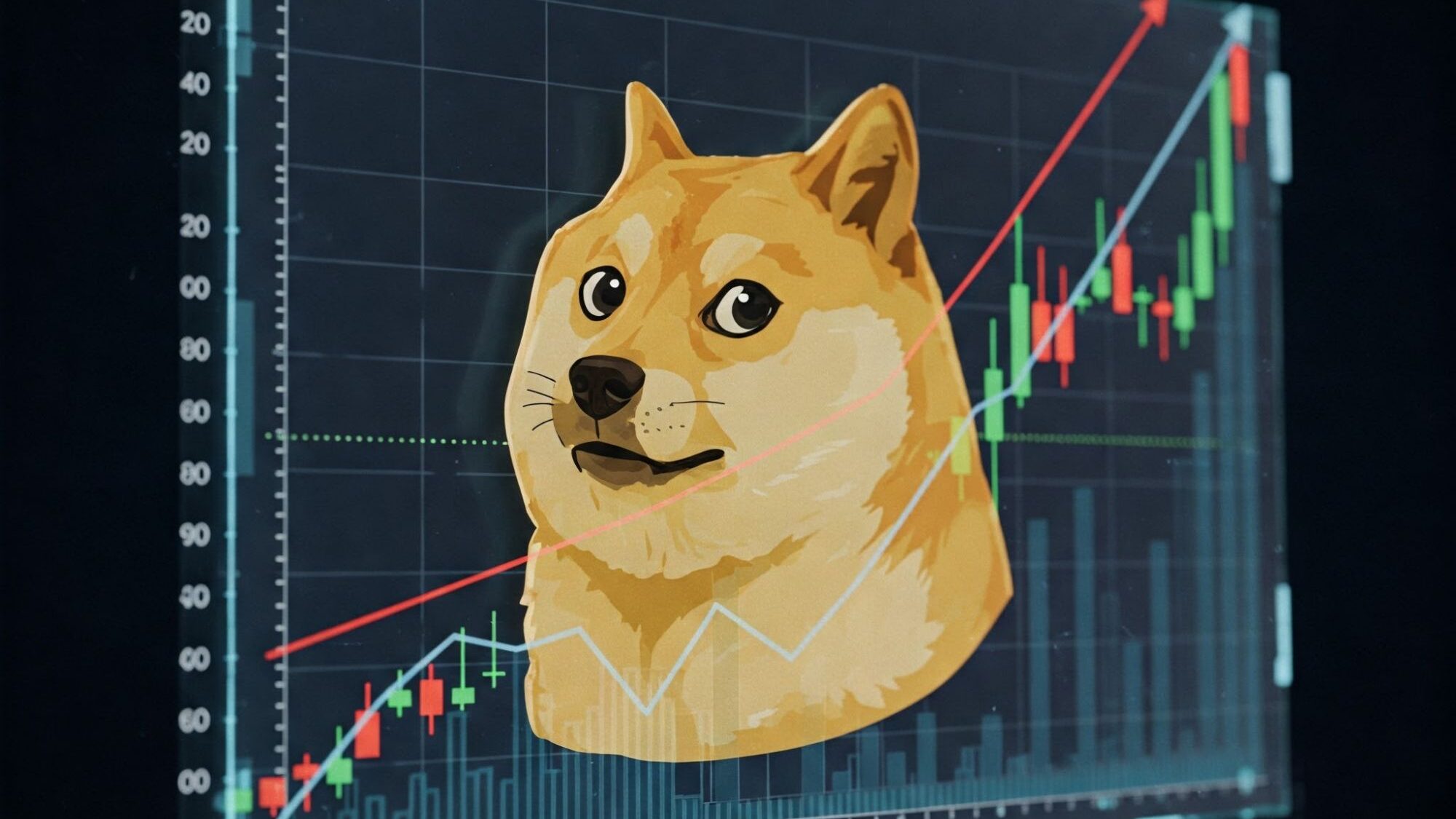
7. The road ahead for Grayscale and Dogecoin
Grayscale’s primary focus is converting GBTC into a Bitcoin ETF. A Dogecoin ETF seems unlikely in the short term because:
- Regulatory priorities: The SEC is more likely to approve a Bitcoin or Ethereum ETF first.
- Market realism: DOGE lacks the institutional infrastructure of larger cryptos.
It is said that crypto markets are unpredictable. If DOGE gains new momentum (e.g., through Elon Musk’s X/Twitter integration), Grayscale may revisit the idea.
Why Bitgert (BRISE) is Gaining Popularity in the Crypto World
Conclusion
The notion of Grayscale filing for an $19 billion spot Dogecoin ETF appears to conflate the firm’s total AUM with unverified rumors. While a Dogecoin ETF would be a revolutionary move, it faces regulatory, market, and logistical challenges. For now, Grayscale’s efforts are focused on Bitcoin and Ethereum, while Dogecoin remains a retail-driven asset. Investors should take such claims with caution and monitor official SEC filings for updates.




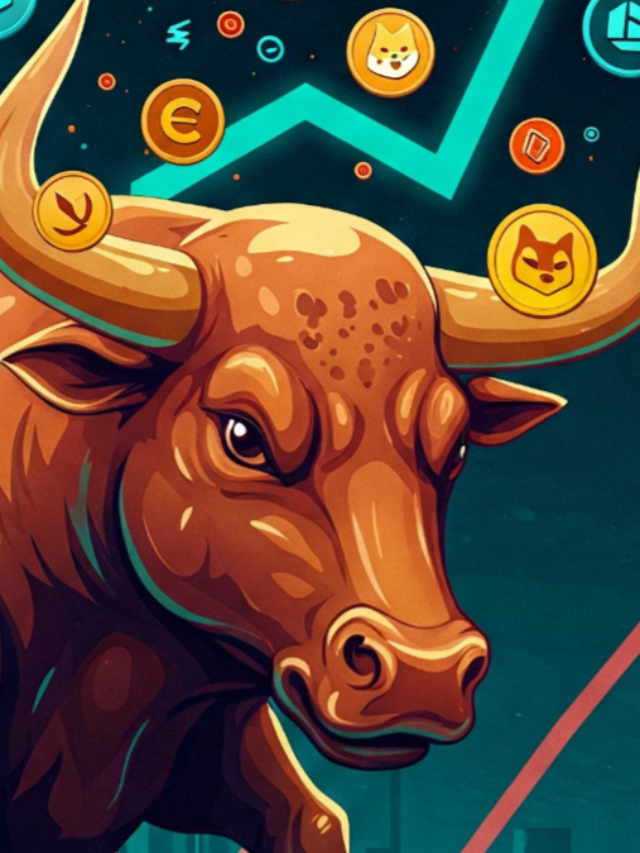
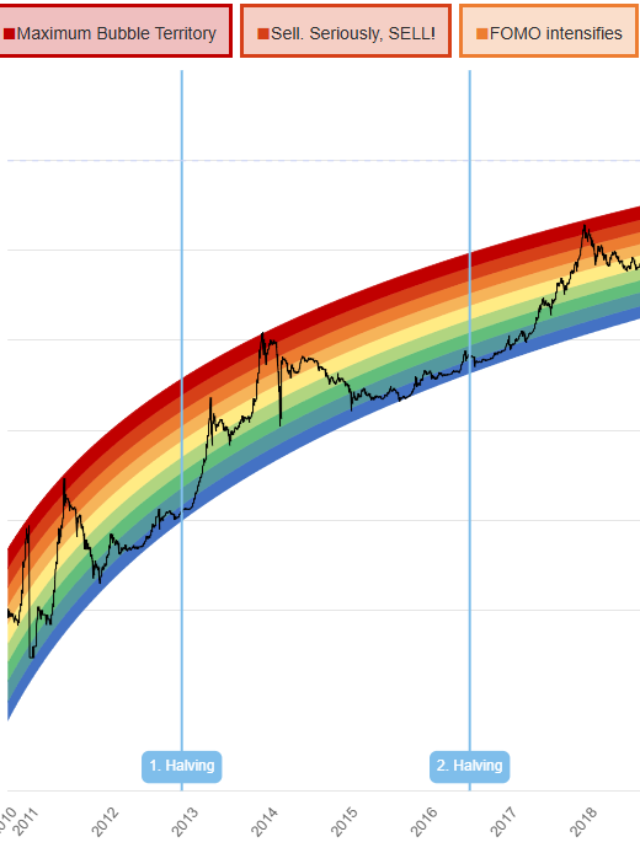
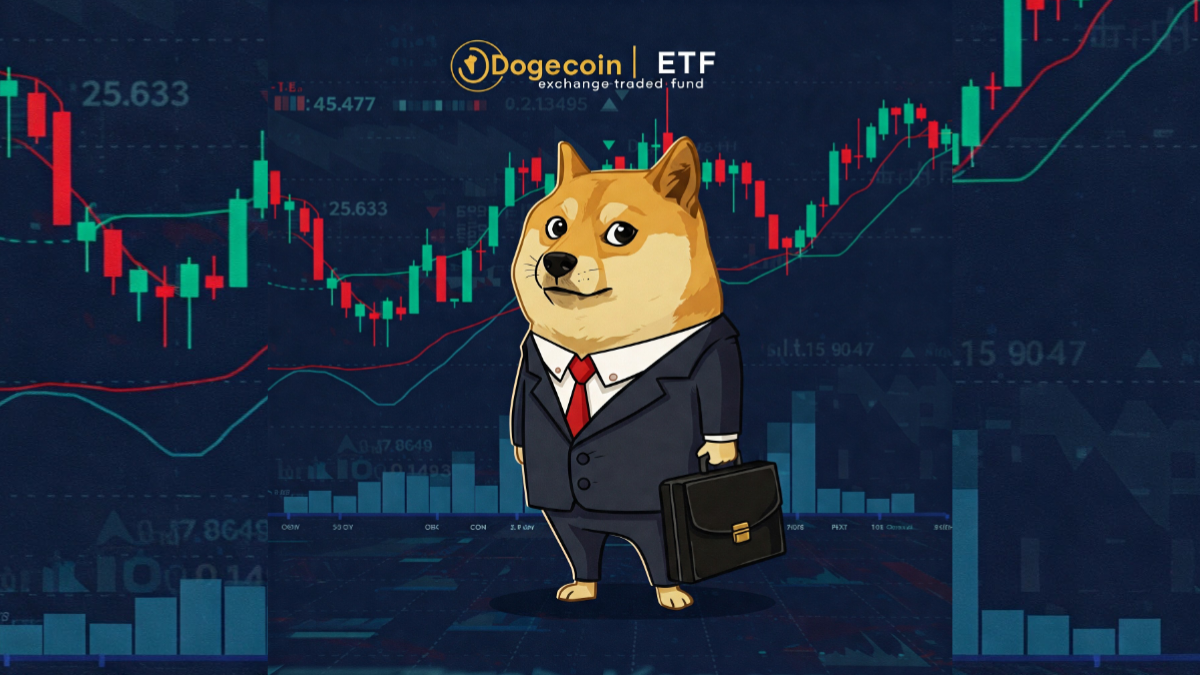
One thought on “Grayscale`s Dogecoin $19 Billion Spot ETF: A Comprehensive Overview”